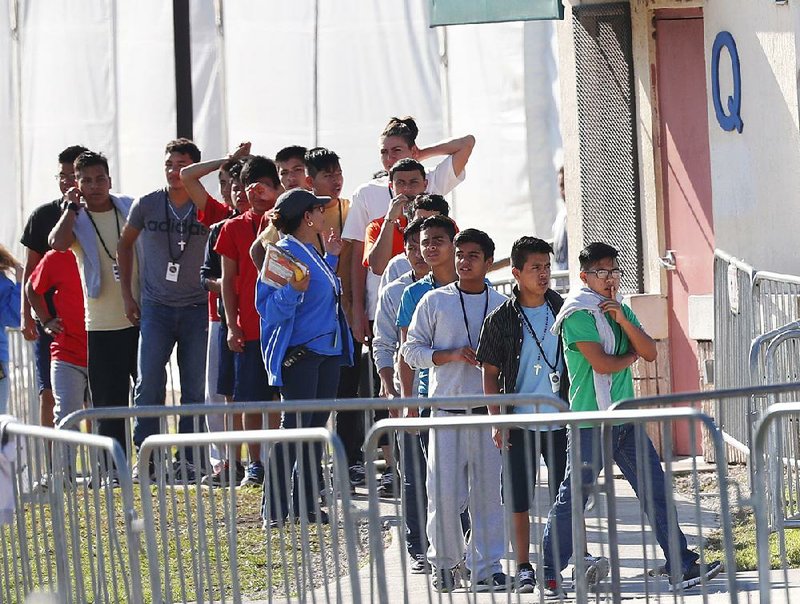MIAMI -- Migrant advocates say the U.S. government is allowing migrant children at a Florida facility to languish in "prison-like conditions" after crossing the U.S.-Mexico border instead of releasing them promptly to relatives as required by federal rules.
A court filing Friday revealed conditions inside the Homestead, Fla., facility that has become the nation's biggest location for detaining migrant children. A decades-old settlement governing the care of detained migrant children calls for them to be released to family members, sponsors or other locations within 20 days, but the court filing accuses the government of keeping kids there for months in some cases.
The children detained at the facility said they longed to be released to their parents and other relatives in the United States, and were allowed limited phone calls to loved ones. Some were also told to heed strict rules or risk deportation or prolonging their detentions.
"At Homestead, children are housed in prison-like conditions and unnecessarily incarcerated for up to several months without being determined to be flight risks or a danger to themselves or others," said the motion filed by the National Center for Youth Law and other organizations in federal court in Los Angeles.
Dozens of volunteer lawyers, interpreters and other legal workers interviewed more than 70 child migrants at Homestead during several visits over the past year. The U.S. Department of Health and Human Services does not allow news media to speak to children during guided tours of the facility.
A Honduran boy described arriving with an aunt at the Mexico border in December. She was deported, and he was sent to Homestead, where he told attorneys he had been for four months. He could speak to his mother in Honduras twice a week while waiting to be placed with another aunt in Virginia. He was punched in the face by a boy at the facility but said he didn't see a doctor or tell his mother, out of fear she would worry more.
"Already it is very hard. We both cry on the phone," he told attorneys. "I have not seen my mom or any family for so long."
The children's allegations come as officials struggle to accommodate increasing numbers of minors illegally crossing the U.S.-Mexico border. The Homestead facility, run by a private contractor, houses 2,200 minors and is expanding to add hundreds of beds.
The U.S. Department of Health and Human Services did not respond to requests for comment. The private contractor, Comprehensive Health Services, declined to comment.
The court filing included testimonials from more than a dozen children who had been separated from parents last year before President Donald Trump's administration ended a policy that led to more than 2,700 children being taken from families. Others, who had crossed the U.S.-Mexico border in the past few months, came alone or with relatives such as aunts, uncles, siblings and were also separated and placed in government custody.
In the same filings, a federal field specialist for the U.S. government's Office of Refugee Resettlement said the goal is "safe, timely release," but that there can be delays, for example, when sponsors can't read and write. And when there's no proof of a relationship, the sponsor is automatically disqualified, the specialist said, adding that "the bottom line is always safety."
A Section on 06/02/2019
